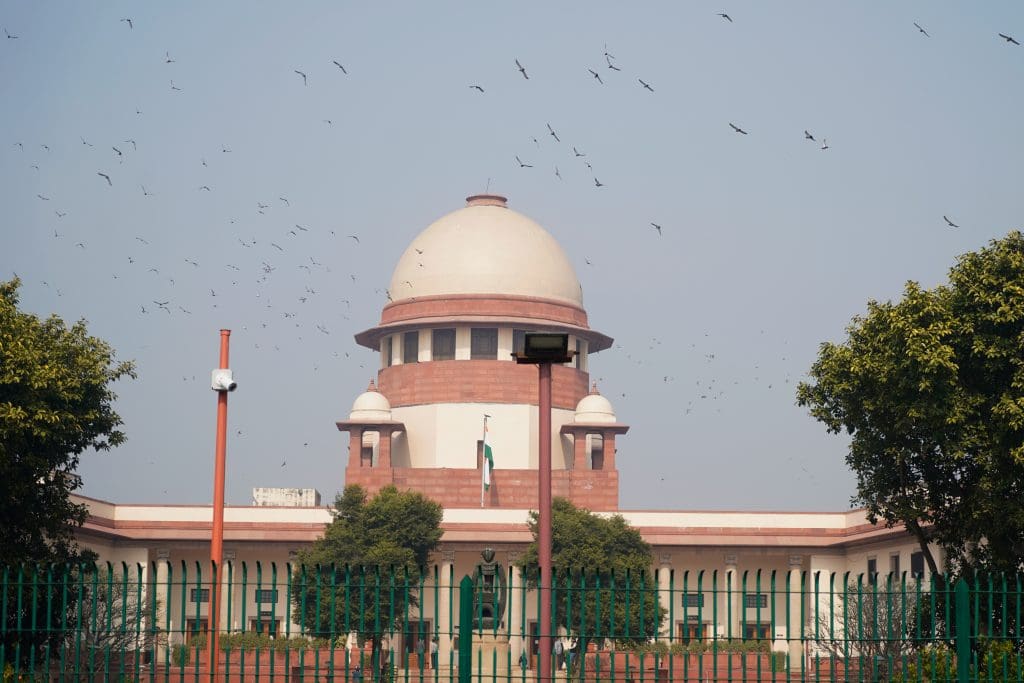
Supreme Court of India on Thursday set aside a Bombay High Court order and quashed an FIR against a Maharashtra college professor booked for his WhatsApp status critical of the abrogation of Article 370 and for wishing Pakistan on its independence day.
“Every citizen of India has a right to be critical of the action of abrogation of Article 370 and the change of status of Jammu and Kashmir,” said the bench of Justices A S Oka and Ujjal Bhuyan.
The top court said: “Describing the day the abrogation happened as a ‘Black Day’ is an expression of protest and anguish. If every criticism or protest of the actions of the State is to be held as an offence under Section 153-A, democracy, which is an essential feature of the Constitution of India, will not survive.”
The bench of Justices Oka and Bhuyan said, “The right to dissent in a legitimate and lawful manner is an integral part of the rights guaranteed under Article 19 (1) (a). Every individual must respect the right of others to dissent. An opportunity to peacefully protest against the decisions of the Government is an essential part of democracy. The right to dissent in a lawful manner must be treated as a part of the right to lead a dignified and meaningful life guaranteed by Article 21.”
“But the protest or dissent must be within four corners of the modes permissible in a democratic set-up. It is subject to reasonable restrictions imposed in accordance with clause (2) of Article 19. In the present case, the appellant has not at all crossed the line.”
The top court’s ruling came on a plea by Javed Ahmad Hajam, who was a professor at a college in Kolhapur. On 10 April last year, the Bombay High Court had turned down his plea for quashing the FIR.
His WhatsApp status read: “August 5-Black Day Jammu & Kashmir. Article 370 was abrogated, we are not happy.” Soon after this, an FIR was registered under IPC Section 153-A by the Hatkanangale police station in Kolhapur.
The SC said: “This is an expression of his individual view and his reaction to the abrogation of Article 370 of the Constitution of India and does not reflect any intention to do something which is prohibited under Section 153-A. At best, it is a protest, which is a part of his freedom of speech and expression guaranteed by Article 19(1)(a).”
On greeting Pakistan, the apex court said: “As regards the picture containing ‘Chand’ and below that the words ‘14th August-Happy Independence Day Pakistan’, we are of the view that it will not attract clause (a) of sub-section (1) of Section 153-A of the IPC… every citizen has the right to extend good wishes to the citizens of the other countries on their respective Independence Days.”
“If a citizen of India extends good wishes to the citizens of Pakistan on 14th August, which is their Independence Day, there is nothing wrong with it. It’s a gesture of goodwill. In such a case, it cannot be said that such acts will tend to create disharmony or feelings of enmity, hatred or ill-will between different religious groups. Motives cannot be attributed to the appellant only because he belongs to a particular religion,” the bench said.
“Now, the time has come to enlighten and educate our police machinery on the concept of freedom of speech and expression guaranteed by Article 19 (1) (a) of the Constitution and the extent of reasonable restraint on their free speech and expression. They must be sensitised about the democratic values enshrined in our Constitution,” the court added.



